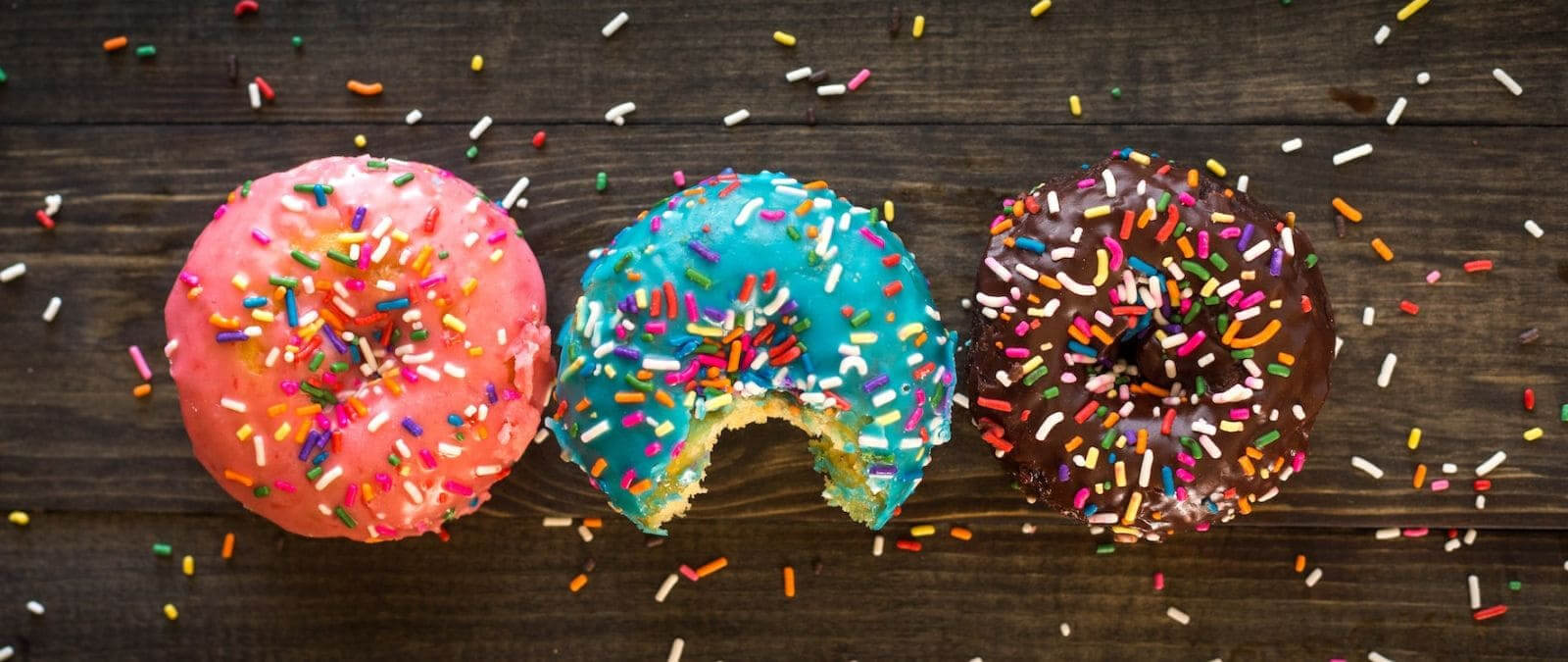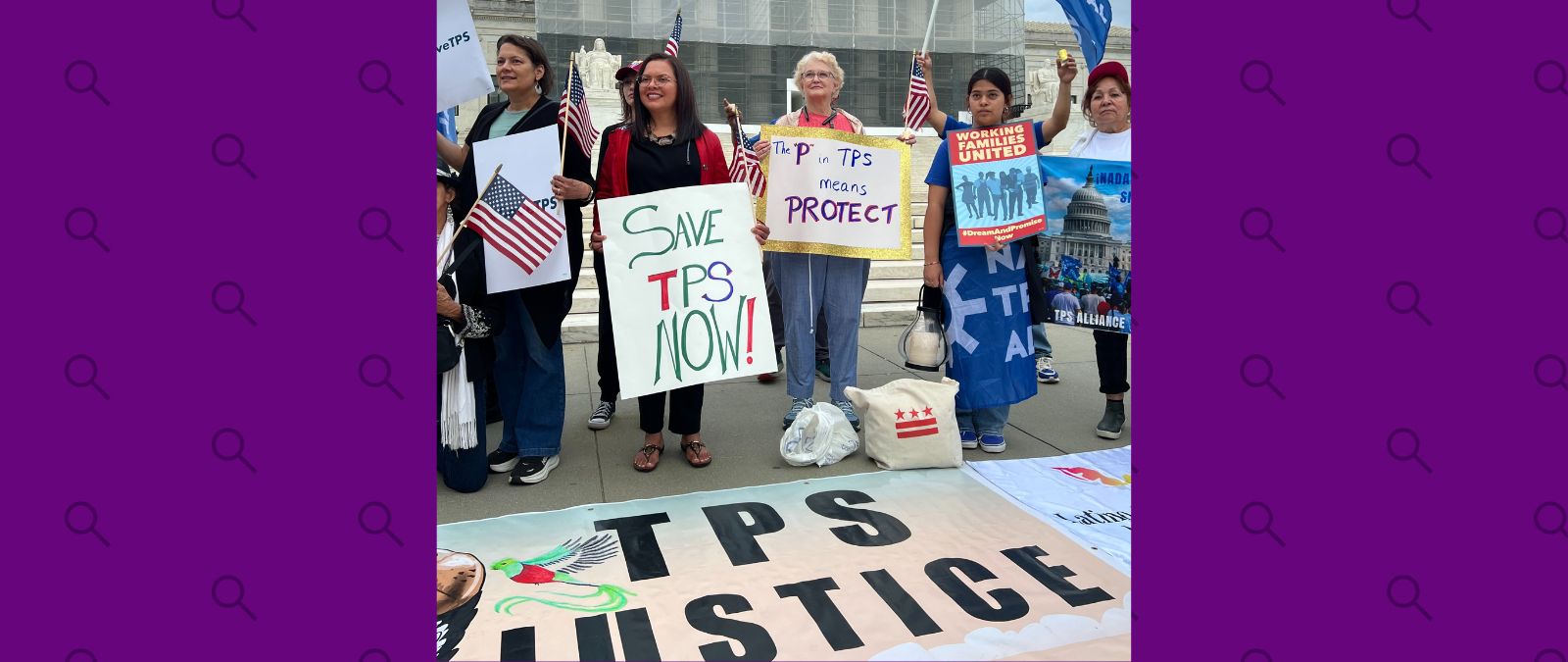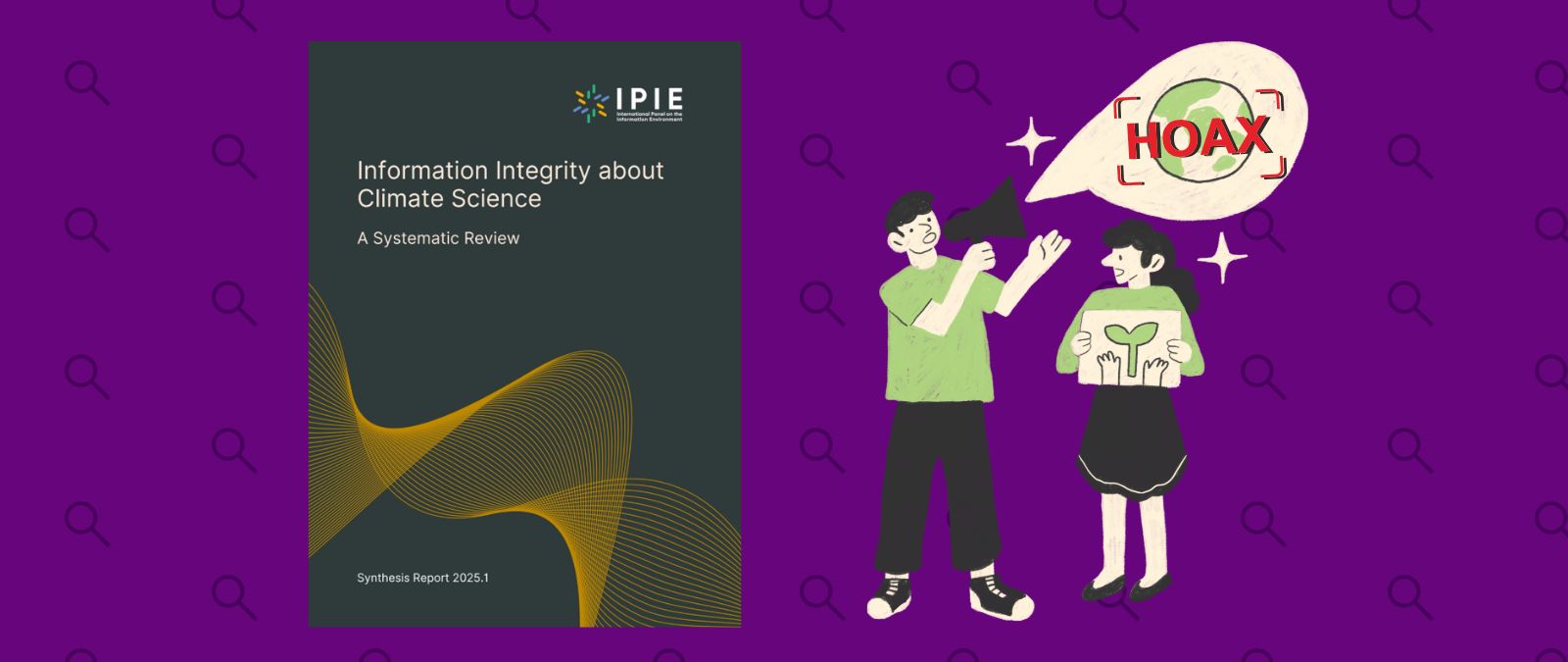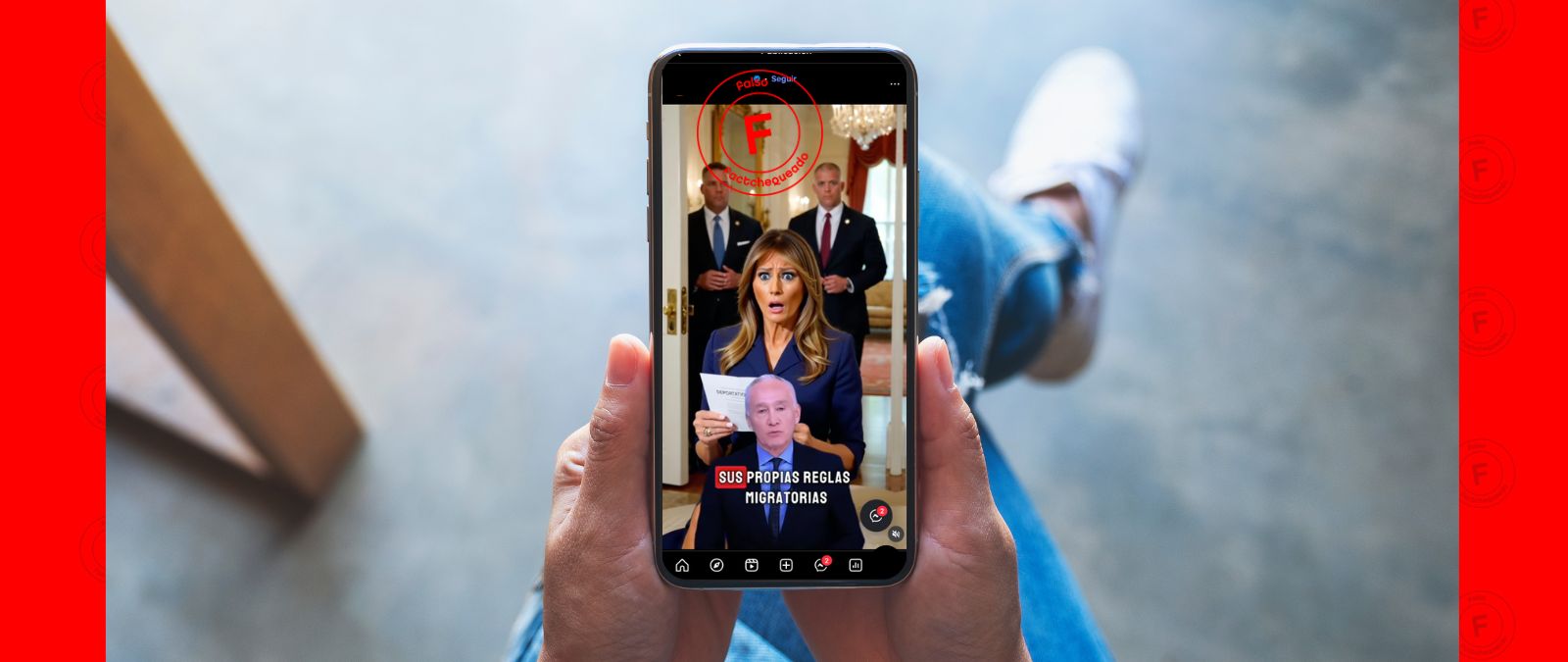Sugar consumption has multiple effects on health in the short, medium, and long term: from insulin resistance to some very prevalent conditions among Hispanics such as type 2 diabetes, obesity, and even the risk of cardiovascular disease. . We explain how this substance affects your health and we give you some tips to reduce its consumption.
From being irritable to blood glucose spikes: the short-term effects
Americans eat and drink too much added sugar, which can increase the risk of health problems such as weight gain and obesity, type 2 diabetes and heart disease, according to the CDC, the disease control agency.
Diana Díaz Rizzolo, doctor in biomedicine, nutritionist and professor at the Open University of Catalonia (UOC), explained on Twitch to Maldita.es, co-founder of Factchequeado, that "the human body is very intelligent": "When we eat a lot of sugar it we metabolize it into glucose. This glucose goes directly into the blood and the pancreas sends insulin. Up to that point it is perfect because the body regulates itself”.
Thus, the pancreas responds to a spike in blood sugar with an increase in insulin production. But, according to the nutritionist, this response mechanism can become less effective over time.
When the pancreas sends a lot of insulin, "the glucose that was in the blood also drops suddenly." This, according to Díaz, makes the body believe "that we are fasting, that we are very low in glucose and it asks us for more."
At that moment, 2 things can happen, according to the expert. On the one hand, we decide not to consume more sugar because we are aware that we do not need it. But when making this decision "we are very irritable and we can get dizzy or have moments of fainting or increased appetite." Or, the other option is that we go back to consuming sugar again "because we feel that it has given us a downturn."
Frequent consumption of sugar can cause insulin resistance or type 2 diabetes
"The problem is that this happens regularly and periodically, since we will be continuously causing those blood glucose spikes," says Díaz. If this happens, "insulin resistance" can develop in the long term.
When this happens, some tolerance to insulin develops, making the hormone less effective, according to the American Diabetes Association: "As a result, more insulin is needed to coax fat and muscle cells to take up glucose and to the liver to continue storing it.
According to Díaz, this means that the insulin sent by the pancreas "is no longer detected in the same way and that in the long term causes type 2 diabetes." There are certain populations that are more likely to develop type 2 diabetes, according to the CDC. The agency indicates that, in general, adults in the United States have a 40% chance of developing type 2 diabetes throughout their lives. But this figure increases to 50% in the case of Hispanics or Latinos.
The complications of this disease also affect this group “more strongly”. As the CDC notes, Hispanics/Latinos have higher rates of kidney failure, as well as diabetes-related blindness and vision loss.
This disease is often associated with obesity and unhealthy lifestyle habits and is a risk factor for many other life-threatening conditions, such as cardiovascular problems. Díaz gives the following example: "As a person dies of a stroke, cancer or heart attack after 25 years having type 2 diabetes. The clearest question is whether that person would have suffered this stroke, heart attack or cancer if they had not had that diabetes. In many cases, practically half of them would not have suffered it”, he points out.
The nutritionist assures that regular tests are essential to detect this disease. In addition, there are some signs that can be used to be alert. For example, "increased thirst". People with diabetes "are very thirsty because they have so much glucose in their blood and the body cannot control it, what it does is expel it through the urine."
High sugar intake is associated with being overweight or the risk of cardiovascular disease
Beyond type 2 diabetes, there are many other diseases derived from sugar consumption. A Cochrane review - an organization that conducts high-quality scientific reviews - on the effect of taxing sugary foods indicates that sugar consumption is also related to overweight and obesity. Something that increases the risk of arterial hypertension, dyslipidemia (alteration in blood lipid levels), insulin resistance, inflammation and cavities, cardiovascular disorders and osteoarthritis (a type of arthritis that only affects the joints), among other consequences.
Non-Hispanic black adults (49.9%) have the highest prevalence of obesity, followed by Hispanics (45.6%), non-Hispanic whites (41.4%) and Asians (16.1%), according to the CDC.
Díaz mentions that obesity is directly to blame for up to 11 different types of cancer. "Specifically, 15% of cancer cases are attributable to the combination of type 2 diabetes and obesity," he adds.
On the other hand, the American Heart Association associates sugar consumption with the risk of cardiovascular disease. José Atencia Goñi, a specialist in Endocrinology and Nutrition, confirms to Maldita.es, the co-founder of Factchequeado, that obesity and diabetes are the main triggers for cardiovascular diseases such as heart attacks and strokes. "We have the example of the United States and its obesity epidemic to verify the havoc that a diet rich in sugar can cause in the population," he says.
According to the American Heart Association, from 2015 to 2018, 52.3% of Hispanic men and 42.7% of Hispanic women ages 20 and older had cardiovascular disease.
An article published in 2014 in the scientific journal JAMA concludes that there is a significant relationship between the consumption of added sugar and an increased risk of mortality from cardiovascular disease.
Diseases of the liver that produce an accumulation of fat in it and can lead to non-alcoholic cirrhosis can also be caused by diets rich in sugar, according to Díaz.
Why the different types of sugar do not have the same impact on our health
Most of the sugar in the American diet comes from sugars added to food products, according to Medline Plus, a service of the US National Library of Medicine.
As indicated by the CDC, added sugars are those that are added to food or beverages when they are processed or prepared. "Natural sugars, such as those found in fruit or milk, are not added sugars," he clarifies.
Added sugars go by many different names. Among them, the agency mentions brown sugar, cane juice, corn syrup, dextrose, fructose, fruit nectars, glucose, high fructose corn syrup, honey, lactose, malt syrup, maltose, maple syrup, molasses, unrefined sugar and sucrose.
Frank Hu, chair of the department of nutrition at the Harvard TH Chan School of Public Health, advises The New York Times not to be fooled by these names, because "they are all added sugars with similar metabolic effects and extra calories."
“When we talk about withdrawing or avoiding sugar in almost all situations, we are talking about the non-intrinsic sugar in food, the added one,” says Díaz. Also, "of the sugar typical of some foods that account for more than 80% of it called free sugars." Among the foods with a high content of free sugars, the expert mentions honey, maple and agave syrups, and nectar.
Dietitian-nutritionist Laura Moya explains to Maldita.es, co-founder of Factchequeado, that we are referring to the consumption of "all simple sugar, either as such or as an ingredient in processed foods such as pastries, sauces, cold cuts, precooked foods, sweetened yogurts, juices…”.
Intrinsic sugars, which are considered healthy, are those present in fresh, unprocessed foods that do not contain labeling or any added ingredients.
Eliminate processed foods, re-educate our palate and other tips to consume less sugar
But then what is the solution? Never eat sugary foods? “To live longer, healthier lives, most Americans need to move more and eat better, including eating less added sugars,” the CDC notes.
Moya considers that extremes are bad: "It is not advisable to demonize sugar, obsessing over eliminating it completely from the diet, nor falling into an excessively permissive range in which we get used to introducing it into daily or habitual consumption, reaching levels in which that it is even difficult not to consume them in this way, bordering on degrees of dependency”.
The World Health Organization and the United States Department of Agriculture (through the Dietary Guidelines for Americans, 2020-2025) recommend reducing the intake of free sugars to less than 10% of total caloric intake. Blay explains that this equates to "50 grams or about 12 level teaspoons for a person of a healthy weight consuming approximately 2,000 calories a day." Still, to get the most benefits, he advises cutting back even further.
"The problem is that, in addition to the products of which we are aware that they have a lot of free sugars, we consume hidden added sugars in other products and we are not aware of it," says dietitian-nutritionist Eduard Baladia, who recommends reduce the consumption of ultra-processed products, "which are usually the ones that hide those sugars."
For Díaz, the solution is to re-educate our palate to the sweetness of food itself in order not to "need" to add sugar to food. He also advises to choose products that are healthy without added sugars and avoiding the consumption of foods such as honey, maple or agave syrups and nectar.
If we do, "we can easily eat a birthday cake or ice cream in summer without regrets or worries since the consumption of sporadic food does not define our dietary pattern." "We are what we eat 365 days a year," he says.
Here we also tell you why the WHO advises against consuming sweeteners to lose weight.
Factchequeado is a means of verification that builds a Spanish-speaking community to counter misinformation in the United States. Do you want to be a part? Join and verify the content you receive by sending it to our WhatsApp + 16468736087 or to factchequeado.com/whatsapp.
Related articles:










